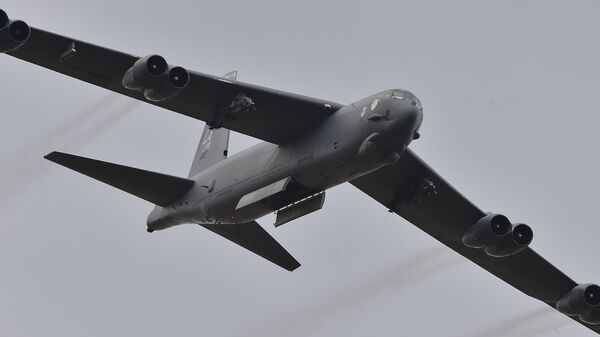"This is yet one more step in ensuring that we’re prepared," USAF chief of staff Gen. David Goldfein said. "I look at it more as not planning for any specific event, but more toward the reality of the global situation we find ourselves in and how we ensure we’re prepared to move forward."
Goldfein and other senior defense officials stressed that despite the alert having not yet been given, it could come. If ordered the measure would be unprecedented. Nothing like this has been seen since 1991, the end of the Cold War.
The general noticed that in the current global environment it is necessary to think about new ways of using nuclear weapons, both for deterrence and combat.
"It’s no longer a bipolar world where it’s just us and the Soviet Union. We’ve got other players out there who have nuclear capability. It’s never been more important to make sure that we get this mission right," he said.
Goldfein’s statements come on the heels of a new spike in tensions on the Korean Peninsula due to Pyongyang’s missile launches and a nuclear test as well as Washington’s repeated threats to resolve the crisis with force. In particularly, US President Donald Trump has threatened to take a "devastating" military option and "totally destroy" North Korea, while North Korean leader Kim Jong-un has warned Washington of "hardline countermeasures" against possible aggression.
The confrontation between Pyongyang and Washington has continued to intensify amid joint US-South Korean drills east of the Korean peninsula. Forty US and South Korean warships, including the supercarrier USS Ronald Reagan, along with US Air Force B1-B strategic bombers, were deployed across an area stretching from the Yellow Sea to the Sea of Japan.
During his recent speech at the Valdai Discussion Club, Russian President Vladimir Putin once again articulated Moscow’s approach to the Korean crisis, emphasizing that Pyongyang should not be "driven into a corner" and calling for international dialogue.
"Any contradictions must be resolved in a civilized manner. Russia has always been in favor of this approach. We are firmly convinced that even the most complex 'knots' … must be untangled, not cut," Putin said.
In June, a "double freeze" scenario was proposed by China and backed by Russia, in which North Korea would cease its nuclear missile tests, while US-South Korean military drills would be simultaneously halted. The initiative has been rejected by Washington.




